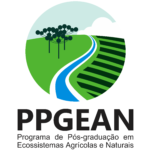REGIONAL CHARACTERISTICS AND HISTORY
The establishment of UFSC Curitibanos Campus took place in 2009. The Campus initially offered undergraduate programs in Rural Sciences, Agriculture, and Forest Engineering. In 2012, the Veterinary Medicine program was also introduced. The Curitibanos Campus is located in the Santa Catarina State’s mountain mesoregion, in Southern Brazil, comprising 31 municipalities known for their primary production-based economy. The region faces several social, economic, and environmental challenges resulting from its historical development, including concentrated landownership, rural exodus, and a lower Human Development Index (HDI) compared to other regions of Santa Catarina.
Regarding environmental concerns, the region experiences issues related to predominant monoculture agricultural production, afforestation with exotic species, extensive agrochemical usage, damming of water sources, alteration of natural ecosystems, and a decrease in biodiversity.
The Mountain Plateau region serves as the headwaters for four major Santa Catarina River basins (Pelotas, Canoas, Itajaí, and Tubarão), all connected to the aquifer system of fundamental importance for over 50% of Santa Catarina’s population, including public water supply sources in various municipalities. It is worth noting that, in this region, groundwater from the Integrated Guarani-Serra Geral Aquifer System, representing a strategic reserve for water supply in the southern region of Brazil, is at risk of contamination from chemical residues stemming from agricultural, forestry, and industrial processes.
This region encompasses the Atlantic Forest biome, and boasts significant biodiversity, constituting a rich repository of largely undiscovered natural resources.
Several native species with potential for agricultural, timber, and non-timber use require characterization and management studies to develop rational, integrated, and sustainable technological use, all while conserving the native fauna and flora. Components of agrobiodiversity, such as heirloom varieties and native tropical and temperate fruit species, have also received special attention in agricultural ecosystem research, aiming to ensure food production sustainability, based on ecological principles and integrated crop-livestock-forestry strategies.







